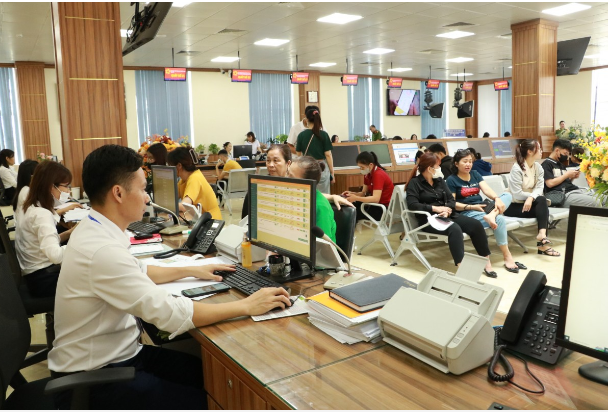
Operational situation of two-level local government organization model
The Resolution clearly stated that, in recent times, the arrangement and operation of two-level local governments have been considered a revolution in organizational apparatus, rearranging the country to have new provisions and new momentum to enter a new era - an era of rising up, becoming rich, strong, civilized, prosperous and thriving.
In terms of institutions , from June 1, 2025 to August 23, 2025, the Government issued 112 Decrees and Resolutions on legal norms (from August 1, 2025 to August 23, 2025 alone, the Government issued 16 Decrees) and many guiding documents, focusing on key areas such as national defense, inspection, environment, finance, education , science, technology, apparatus organization, civil service regime... creating a complete and synchronous legal corridor for the new model. This is an important basis for localities to unify implementation, ensuring legality, constitutionality and effectiveness of state management.
Regarding the political security situation , social order and safety are maintained, public opinion positively evaluates and agrees with the innovation policies and guidelines. People, cadres and party members express their confidence in the leadership of the Party and the direction of the Government in building a two-level government model.
Existence, limitations and causes
Besides the achieved results, there are still limitations and difficulties that need to be focused on overcoming such as:
(1) The consolidation of the local organization and personnel after the merger is still facing difficulties. In general, the current human resources at the grassroots level are both redundant and insufficient, and limited in terms of both professional quality and technological skills.
(2) There are still many limitations in infrastructure: Some localities still lack or have degraded, cramped, and scattered headquarters; public administrative centers are far away, not convenient for people. Handling surplus headquarters according to the plan to convert functions into medical facilities, education facilities, and public works still faces many difficulties. There are still many houses and land facilities that need to be handled, and the handling progress is still slow.
(3) The financial and budgetary mechanism has not kept up with the new model while the management area is larger. The assignment of budget expenditure tasks after the rearrangement still has many problems, and some assigned tasks are not consistent among units.
(4) Information technology infrastructure from central to local levels is still lacking in synchronization, causing difficulties in connectivity and not ensuring comprehensive public services.
(5) Propaganda and dissemination work on the two-level local government model in some places is not really extensive; a part of the people, cadres and civil servants are still not familiar with the new operating method.
Some implementation guidance documents were issued untimely and incompletely, decentralization and delegation of power were still formal, reducing the initiative of local authorities; financial resources were not guaranteed, progress in allocating additional budgets and handling surplus assets and books was slow. The urgent implementation time, while objective conditions in many localities, especially mountainous areas, islands, remote areas, and isolated areas, still faced many difficulties, were also factors hindering the full and timely implementation of tasks as prescribed.
Removing difficulties and legal problems related to the activities of two-level local governments
To continue effectively implementing the tasks of ensuring the stable and smooth operation of the two-level administrative apparatus, serving people and businesses better and better; at the same time, promoting socio-economic development, ministries, branches and localities need to focus on implementing a number of key tasks and solutions.
Regarding institutions, the Government requires ministries, branches and localities to continue to comprehensively review legal documents, especially regulations on decentralization, delegation of power and determination of authority; urgently and resolutely complete the system of documents regulating and guiding the implementation of the two-level local government model, creating a complete political and legal basis, ensuring favorable conditions for localities to implement.
Ministers, heads of ministerial-level agencies and government agencies directly lead, direct, advise and propose to remove difficulties, obstacles and legal bottlenecks that have been reviewed according to the conclusion of the Central Steering Committee on perfecting institutions and laws; urgently direct and guide the handling and removal of difficulties and obstacles directly related to the activities of local governments at two levels, especially for socio-economic development projects and programs, and effectively implement local growth goals and targets in 2025.
Prioritize administrative procedures for people and businesses, avoid backlog and delay
Regarding the settlement of administrative procedures at the grassroots level, the Government requires ministries, branches and localities to focus on prioritizing the settlement of administrative procedures for people and businesses, avoiding backlogs and delays. This must be identified as the top priority: Removing difficulties, obstacles and bottlenecks in the implementation of administrative procedures is the resource and driving force for development. Continue to maintain training and guidance for the grassroots, especially at the commune level; inspect and supervise the implementation of settlement in accordance with regulations, avoiding congestion.
Localities shall carry out administrative procedures under the one-stop and one-stop mechanism at the Public Administration Service Centers at all levels in accordance with the provisions of Decree No. 118/2025/ND-CP; in particular, the establishment of a one-level Public Administration Service Center shall comply with the provisions of Point c, Clause 2, Article 15 and Clause 1, Article 16 of the Law on Organization of Local Government; the establishment of a commune-level Public Administration Service Center shall comply with the provisions of Point a, Clause 2, Article 21 and Clause 1, Article 22 of the Law on Organization of Local Government.
The Government Office shall draft a Decree amending and supplementing a number of articles of Decree No. 63/2010/ND-CP on administrative procedure control according to the simplified procedure, ensuring effective implementation of the Law on Promulgation of Legal Documents in 2025, strictly controlling the issuance and maintenance of administrative procedures that are truly necessary, reasonable, legal, and have the lowest compliance costs, and submit them to the Government in 2025; provide guidance on standardization and unification of the scope of publication of internal administrative procedures according to the province's jurisdiction. Urge ministries and ministerial-level agencies to promptly publish and update the national database for newly issued, amended, supplemented, or abolished administrative procedures as a basis for localities to publish and publicize administrative procedures under their jurisdiction in the area.
The Ministry of Justice urgently issues unified regulations on the level of online public services in the field of certification; upgrades the civil status software system, ensuring connectivity with the administrative procedure system of provinces and cities; fixes information asynchronization errors between the Civil Status Management Information System and the Administrative Procedure Resolution Information System to promptly address people's needs for performing administrative procedures related to civil status.
Urgently issue specific guidance documents on the basis for land recovery, allocation and lease.
Regarding planning and land, the Government assigned the Ministry of Construction to urge and inspect the implementation of Resolution No. 66.1/2025/NQ-CP dated July 18, 2025 of the Government regulating the handling of difficulties and obstacles in establishing new, adjusting and approving zoning plans for urban areas when implementing the arrangement of administrative units at all levels and organizing two-level local governments. Orient new development spaces, adjust appropriate planning to maximize the potential differences, outstanding opportunities, and competitive advantages of each provincial and communal administrative unit.
The Ministry of Finance studies and considers the simplified process and procedures for approving adjustments to the Planning of new provinces and cities to promptly meet the socio-economic development needs of localities.
The Ministry of Agriculture and Environment urgently issues specific guidance documents on the basis for land recovery, allocation and lease according to the Land Law; guides the preparation of commune-level land use plans and plans according to the provisions of Decree No. 151 and Circular No. 23/2025/TT-BNNMT; advises on the implementation of a unified land price framework after the merger, as a basis for implementing compensation and site clearance work.
Guidance on the arrangement and assignment of non-professional staff
Regarding the organization of the apparatus, payroll, and personnel work , the Government assigned the Ministry of Home Affairs to urgently advise and submit to the Government documents amending and supplementing regulations on organization of the apparatus, payroll, recruitment, assessment, planning, training, and fostering of cadres according to the new regulations of the Politburo so that localities have a basis for unified implementation. At the same time, promptly submit to the Government for promulgation of regulations on criteria and procedures for arranging villages and residential groups; coordinate with relevant ministries, branches, and localities to guide the arrangement of non-professional workers for localities to organize implementation; provide guidance on the functions, tasks, and powers of public service units so that commune-level People's Committees can review and adjust the functions and tasks of affiliated public service units to ensure consistency and unity. Urgently advise the Government to issue regulations on administrative unit standards, administrative unit classification and urban classification in September 2025.
The Ministry of Home Affairs shall preside over and coordinate with relevant agencies to urgently advise and submit to the Government for promulgation of guiding documents on title standards and job positions, thereby serving as a basis for determining the appropriate number of staff, ensuring the smooth and effective operation of the apparatus. Ministries, branches and localities shall urgently complete the positions of missing staff, ensuring the number; during the completion process, they shall learn from experience and propose solutions to improve the effectiveness of personnel work, ensuring the smooth and effective operation of the apparatus.
The Ministry of Home Affairs shall preside over and coordinate with the Ministry of Education and Training, the Ministry of Health, relevant ministries, sectors and localities to review the overall demand for civil servants in the education and health sectors in localities; guide, monitor and inspect the implementation of recruitment to ensure compliance with regulations on the number of positions assigned immediately from the 2025-2026 school year; proactively develop a salary and allowance project, report to competent authorities for decision to apply generally and consistently throughout the political system.
The Ministry of Education and Training and the Ministry of Health review the Circulars guiding the staffing norms of the education and health sectors and fields, ensuring compliance with the policies and conclusions of the Politburo and the reports of the Central Steering Committee before promulgating them according to their authority.
Arrange and rotate staff in accordance with local realities
Regarding the dispatch of cadres from ministries and branches to localities , the Government assigned the Ministry of Home Affairs to preside over and guide the dispatch of cadres to localities based on the specific needs and proposals of the localities (issues that require support, number of cadres, time limit, etc.), thereby ensuring reasonable arrangement of cadres based on local coordination, avoiding waste, omissions and overlaps; localities need to be proactive in arranging, assigning and rotating cadres to suit the practical situation of the localities, avoiding the situation of excess in some places and shortage in others, failing to meet work requirements.
The Ministry of Home Affairs coordinates with relevant ministries and branches to develop specific standards for each job position, thereby serving as a basis for recruitment, rotation and appointment of officials, ensuring transparency and efficiency; developing in-depth training and development programs with high applicability, especially in the fields of finance, law, information technology and planning; researching and developing online instructions, detailed step-by-step, disseminated on social networking platforms, online training systems for commune and ward-level officials to research and study, especially procedures, regulations, standards... for use in the performance of duties.
Building a specific, separate financial mechanism suitable for each type of two-level administrative unit.
The Ministry of Finance shall preside over and continue to allocate financial resources from the central budget to support investment in infrastructure and public housing in newly established communes, wards and special economic zones, especially in mountainous and disadvantaged localities.
In addition, the Ministry of Finance shall preside over and coordinate with ministries, branches and localities to study and develop specific and separate financial mechanisms suitable for each type of two-level administrative unit (for example: urban areas, mountainous areas, islands, etc.) to ensure that resources are allocated effectively.
Source: https://hanoimoi.vn/chi-dao-moi-ve-trien-khai-thuc-hien-van-hanh-mo-hinh-chinh-quyen-dia-phuong-hai-cap-715036.html





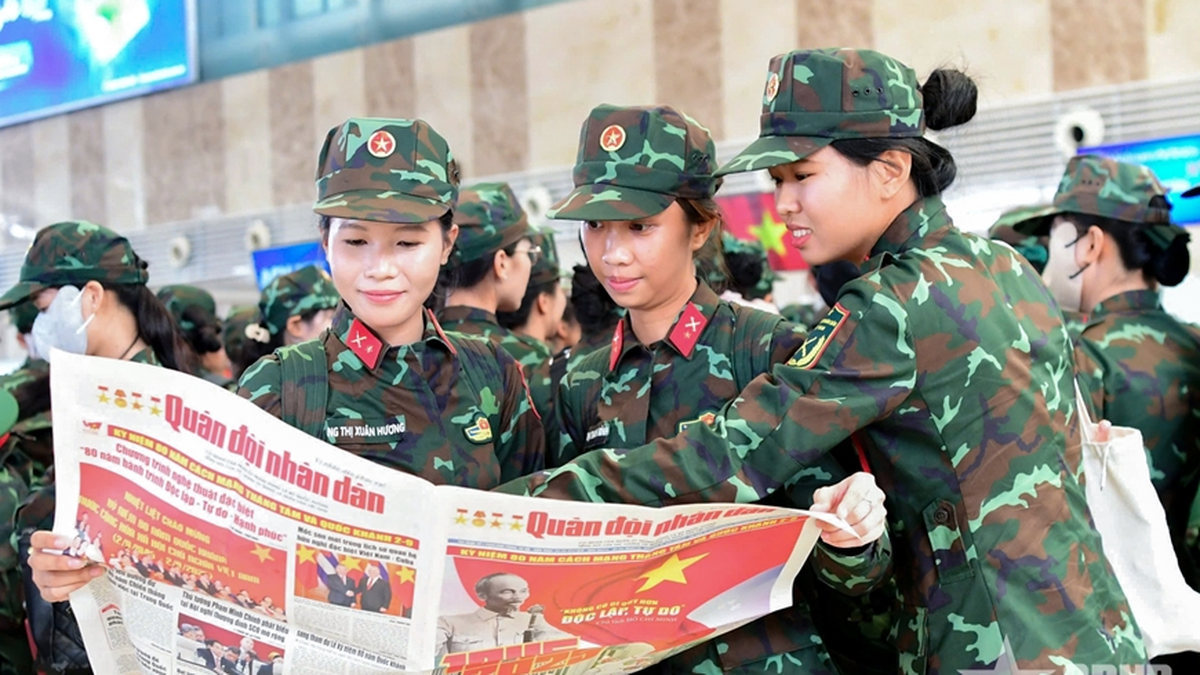


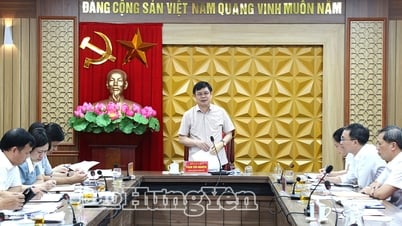

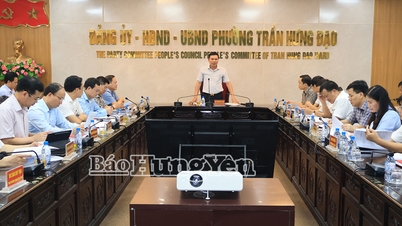



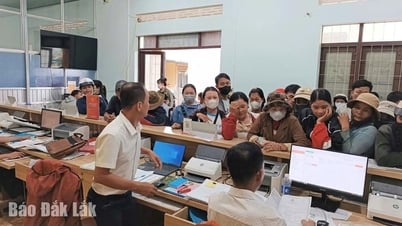

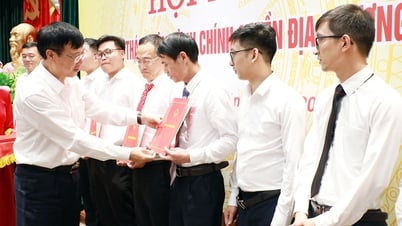









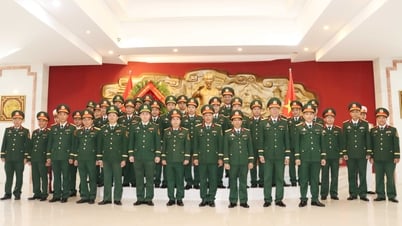







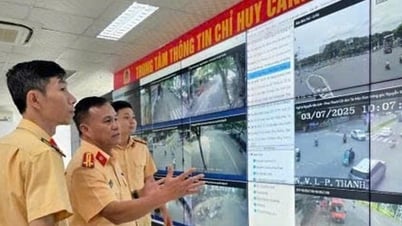
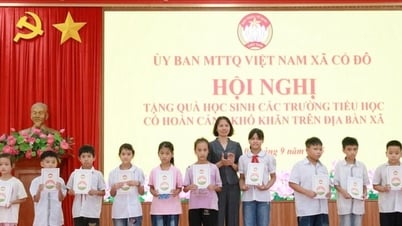
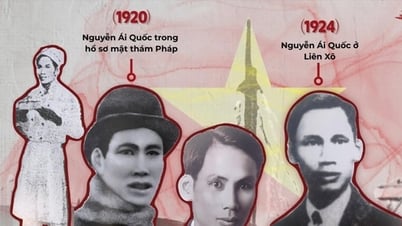




























![[VIDEO] Petrovietnam – 50 Years of Keeping the Heritage Torch, Building National Energy](https://vphoto.vietnam.vn/thumb/402x226/vietnam/resource/IMAGE/2025/9/3/3f5df73a4d394f2484f016fda7725e10)

![[Photo] President Luong Cuong meets with Russian President Vladimir Putin](https://vphoto.vietnam.vn/thumb/402x226/vietnam/resource/IMAGE/2025/9/3/87982dff3a724aa880eeca77d17eff7f)
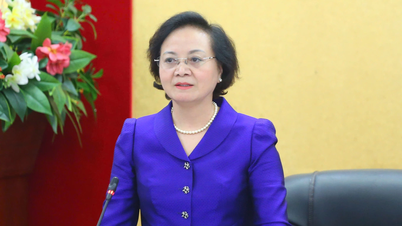

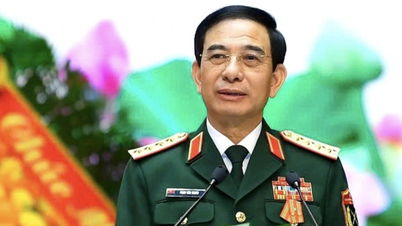
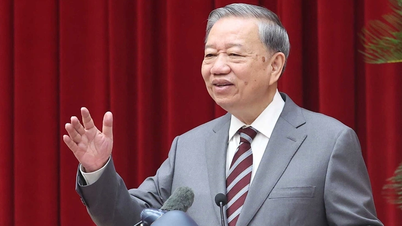

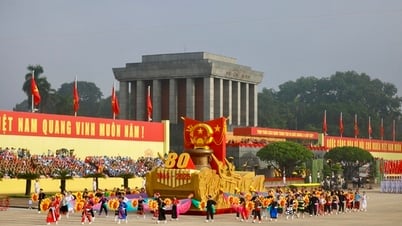


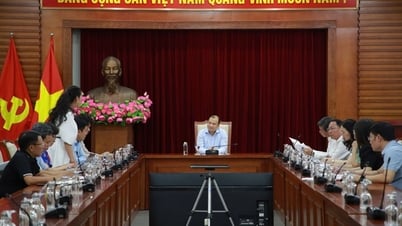
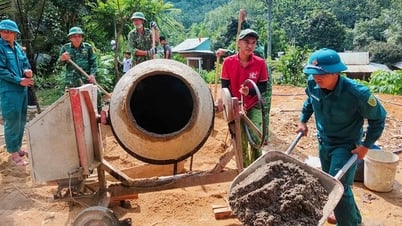

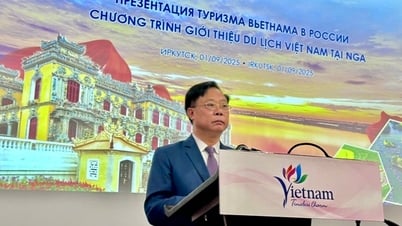






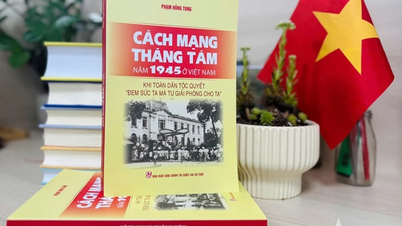
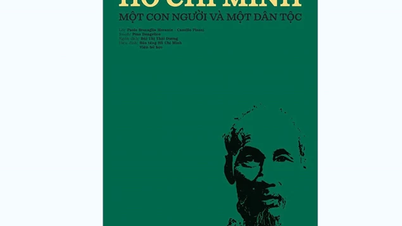



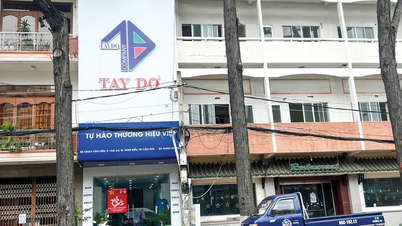











Comment (0)